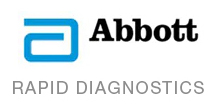Proper storage of samples, vaccines, drugs, and other perishables is essential for preventing spoilage and contamination. Browse a wide selection of refrigerators and freezers and monitoring equipment for controlling temperature in your clinical lab.
You’ll find pharmacy refrigerators and freezers designed to meet NSF 456 vaccine storage standards for maximum security and temperature stability. Multiple laboratory refrigerator and freezer configuration options—including undercounter, upright, and combination models—let you select the right cold-storage solution for your specific environment. Plus, choose thermometers and digital data loggers to help ensure that your samples and materials are stored at the temperatures required.
More About Cold Storage Products
Refrigerators, freezers, and cryogenic equipment are designed for the cold storage of samples that are used in industrial, clinical, and research laboratory settings. Cryogenic equipment is used to store samples in liquid nitrogen (–196°C to –210°C). Internal temperatures will remain at or below –196°C when the supply of liquid nitrogen is consistently replenished.
Refrigerators maintain temperatures somewhere between 1°C and 12°C. You can choose refrigerators with capacities from 1 to 80 cubic feet in under-the-counter, benchtop, or upright configurations. Refrigerators may have single or multiple compartments, internal shelving or drawer formats, and solid or glass hinged or sliding door options.
Freezers are available in a variety of formats and sizes, including upright, chest, and countertop. Insulated containers maintain a constant temperature to help protect temperature-sensitive materials during benchtop use, short- or long-term storage, or transport. Standard freezer temperatures range from –10°C to –30°C. Ultra-low-temperature freezers may have more than one internal door to help maintain temperatures and may offer keyed locks. Ultra-low temperature freezers maintain temperatures between –50°C and –90°C.
Freezers designed for enzyme or plasma storage or for blood banks and pharmacies often have integral temperature recording capabilities and alarm systems to help with regulatory requirements. They can also have flexible internal shelving, sliding drawers, or bins to accommodate specific products or materials. Refrigerators and freezers may also be designed to store flammable or potentially explosive products.
Refrigerator and freezer accessories include repair components, replacement parts, and support products that are specifically intended for cryopreservation systems.
Advantages of Laboratory Refrigerators in the Clinical Lab
Laboratory refrigerators are designed with special features and options for use in the laboratory, as opposed to simpler models intended for purely domestic, catering, or other uses. Together with laboratory freezers, laboratory refrigerators are essential equipment in most laboratories and include a range of refrigerator and freezer accessories.
Advanced Features of Laboratory Refrigerators:
- Integrated electronic control systems for precise, energy-efficient temperature regulation
- Digital displays and touchscreen temperature control panels
- Optical or acoustic alarm systems for over- or under-temperature warnings
- Environmentally friendly refrigerants and insulation
- Spark-proof interiors for storage of flammable materials
- Access ports for thermometer probes and other devices
- Remote temperature monitoring capabilities
- Secure locking systems
- Fan-assisted cooling for stable temperature control and rapid temperature recovery after door opening
- Automatic defrosting routines
- High ambient temperature operating tolerances
Cold Storage Accessories
Data Loggers
Data loggers are devices used to collect and record physical data such as temperature, humidity, speed, sound, and light levels to ensure sample quality and regulatory compliance during storage, transportation, and handling. They may be wireless devices and are available with and without displays.
These electronic devices record data over time or in relation to location. Generally, they are small, battery powered, portable, and equipped with microprocessors, data storage memory, sensors, and remote connectivity.
Digital Thermometers
Digital thermometers measure temperatures or temperature gradients and report results in a digital format. Every digital thermometer has two important elements: a temperature sensor and a mechanism to convert the temperature to a numerical and digital value.
Digital thermometers are available in a number of forms and styles and vary by detection method. They may measure ambient temperatures or may have a probe to measure internal temperatures.
In addition, digital thermometers vary by temperature range, typically dictated by the intended application or use:
- Ultra-low temperatures
- Freezer temperatures
- Refrigerator temperatures
- Incubator temperatures
- Oven temperatures
- Furnace temperatures










